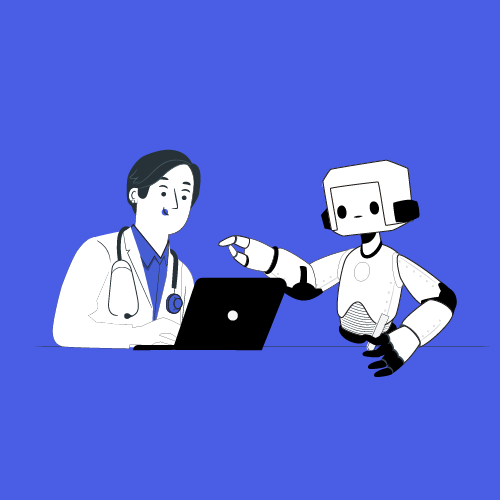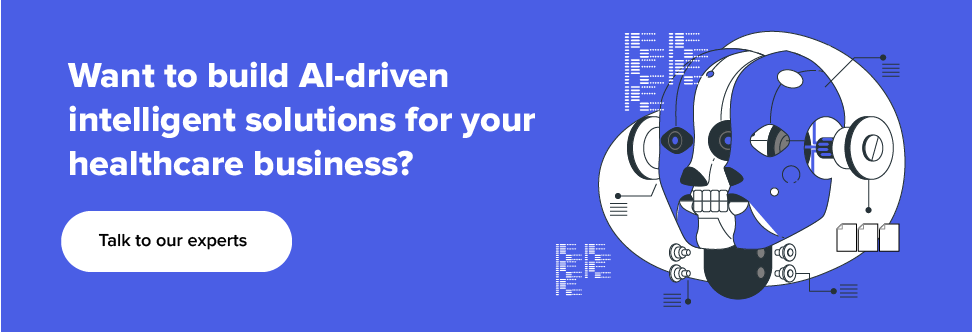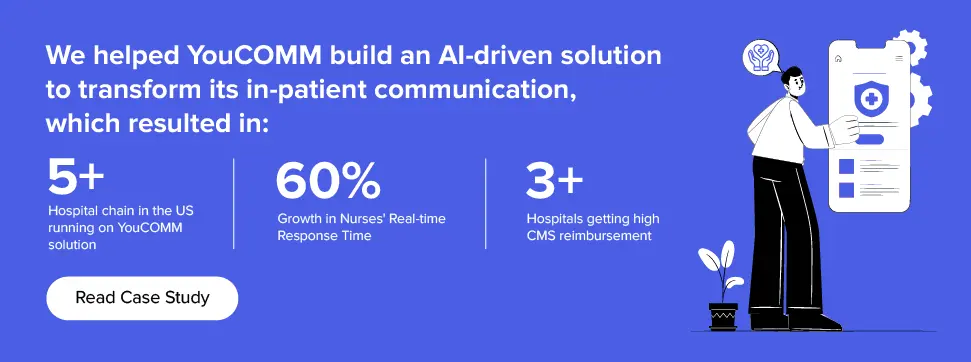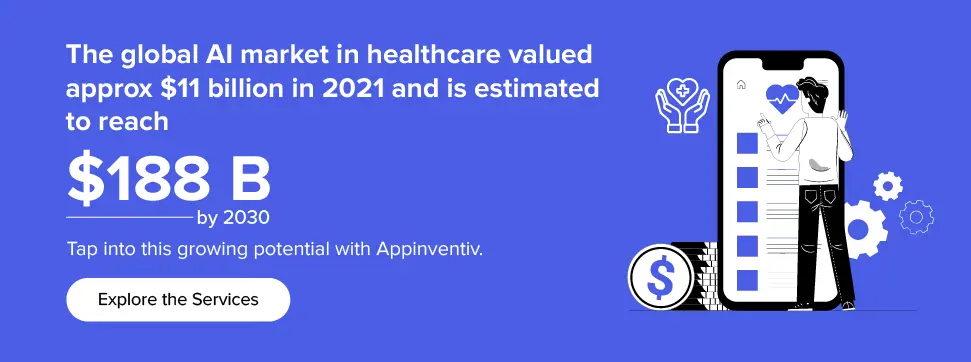- Real-World Examples and Use Cases of AI in Healthcare
- 1. Offering Robot-Assisted Surgery
- 2. Detecting Fraud
- 3. Supporting Clinical Decisions
- 5. Changing Online and In-Person Consultations
- 6. Medication Management and Health Assistance
- 7. Drug Creation
- 8. Precision Medicine
- 9. Analysis of a Healthcare System
- 10. Automating Image Diagnosis
- Types of AI in Healthcare
- 1. Machine Learning
- 2. Natural Language Processing
- 3. Robotic Process Automation
- 4. Rule-Based Expert System
- Challenges of AI in Healthcare
- Data Availability
- Privacy Concerns
- Errors and Injuries
- Transformative Benefits of AI in Healthcare
- Personalized Treatment Plans
- Operational Efficiency
- Telemedicine and Virtual Health Assistants
- Drug Discovery and Development
- Patient Engagement and Education
- Future of AI in Healthcare
- How Appinventiv Can Help in Your AI Journey
- FAQs
The emergence of AI in healthcare has been transforming, redefining the way we diagnose, monitor, and treat patients. This cutting-edge technology is driving massive innovation in the industry, facilitating rapid advancements in drug discovery and development while empowering healthcare professionals to provide enhanced and expedited care.
The outbreak of the COVID-19 pandemic has further pushed the healthcare industry to adopt AI. The pandemic supported the widespread adoption and advancements of AI-based healthcare, enabling their effective utilization in diagnosis, detection, patient care, clinical trials, claims settlement, and virtual assistants.
According to Statista, AI in healthcare was worth around $11 billion worldwide in 2021 and is estimated to reach $188 billion by 2030, increasing at a CAGR of 37% from 2022 to 2030.
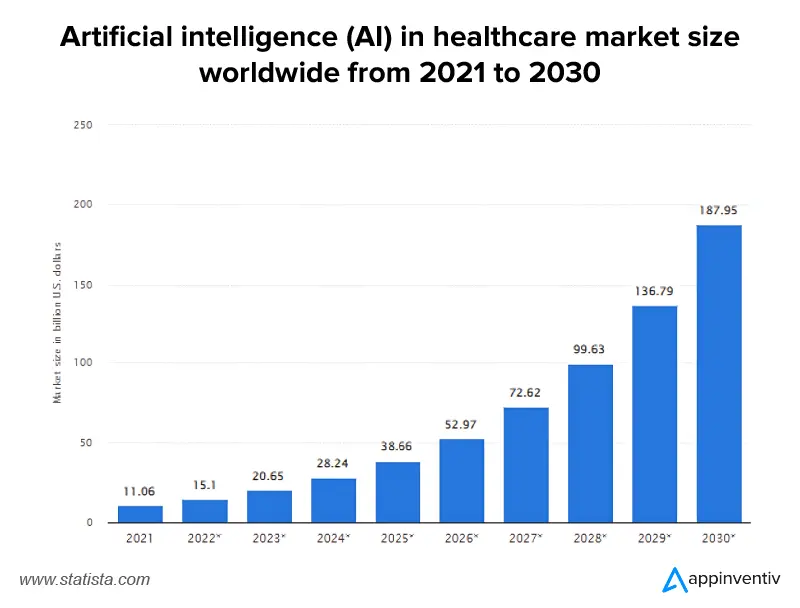
AI in healthcare can immensely benefit providers and patients in different areas of operations, including improved patient care, chronic disease management, early risk identification, workflow automation, and optimization.
In this article, we will look into artificial intelligence at length to get an idea of how AI is used in healthcare and how the technology will reshape the industry in the future.
Real-World Examples and Use Cases of AI in Healthcare
From making an accurate diagnosis to maximizing hospital efficiency, AI and healthcare go hand in hand, redefining the industry in various forms. Here are a few ways AI is revolutionizing the healthcare industry and driving it toward digital transformation.
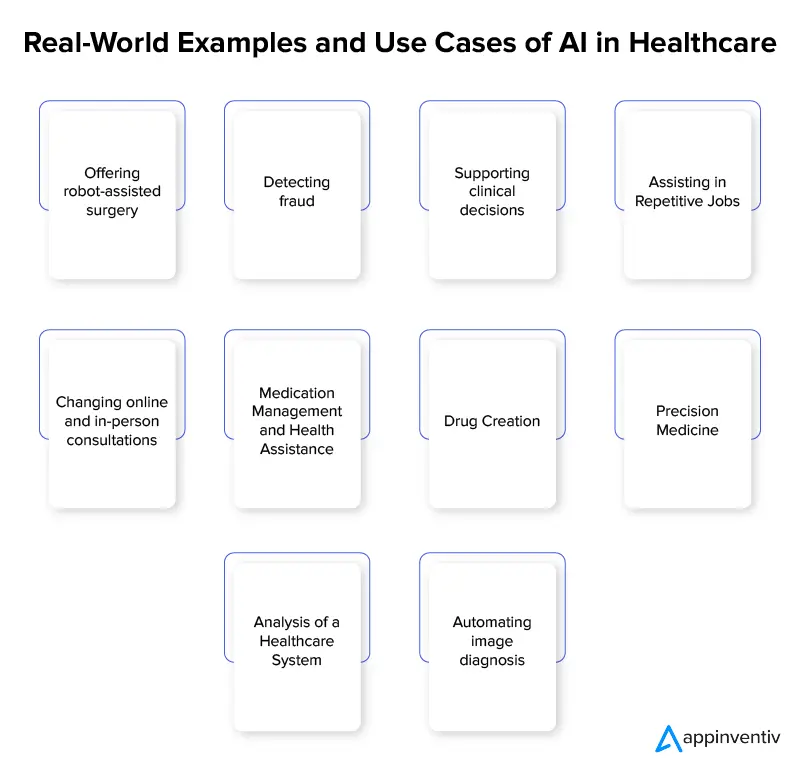
1. Offering Robot-Assisted Surgery
It is one of the most common applications of AI in healthcare. AI and collaborative robots have revolutionized surgical procedures, reducing the risks of blood loss, pain, and other side effects. Furthermore, with AI in healthcare, surgeons can perform complex surgeries with greater accuracy, leading to faster and smoother post-surgery recovery for patients.
For instance, Maastricht University Medical Center has been utilizing AI-powered robots to suture small blood vessels, some no thicker than 0.03 millimeters. Using AI in medicine and healthcare, surgeons can access real-time information and insights into a patient’s current health condition. This AI-backed information enables healthcare providers to make prompt, intelligent decisions before, during, and after procedures to ensure the best outcomes.
2. Detecting Fraud
The US Justice Department states that 3% of healthcare claims in the country are fraudulent. It translates into a $100 billion loss annually. With AI-based healthcare, professionals can detect invalid claims and speed up the processing, approval, and payment of valid ones. Apart from detecting insurance fraud, AI in healthcare also prevents patient data from being stolen.
Leading healthcare service providers such as Harvard Pilgrim Health are embracing AI to root out healthcare fraud. They use AI-based fraud detection systems to identify claims and detect suspicious behavior.
3. Supporting Clinical Decisions
AI and ML in healthcare are changing the way clinical providers make decisions. AI delivers data to assist healthcare professionals in diagnosing, treatment planning, and health management. The technology also supports decisions in data-intensive specialties like ophthalmology, radiology, and pathology. It may even make it possible to perform certain tasks autonomously using AI in the near future. With natural language processing, AI can also help translate clinical notes in EHRs, enabling clinicians to enter data once only once.
Also Read: AI in Mental Health – Use Cases, Opportunities, Challenges
4. Assisting in Repetitive Jobs
Healthcare is now moving towards the Cognitive Assistants world, which comes with the capabilities of reasoning, analytics, and a complete range of medical knowledge. The recently launched algorithm, Medical Sieve, has been stated qualified to assist in cardiology and radiology decisions. The cognitive health assistant analyzes the radiology images to detect issues faster and more reliably.
Medical Sieve is one of the best examples of AI in healthcare. However, there are other examples also, like Enlitic, which aims to mix deep learning with medical data to aid advanced diagnostics and improve patient care. 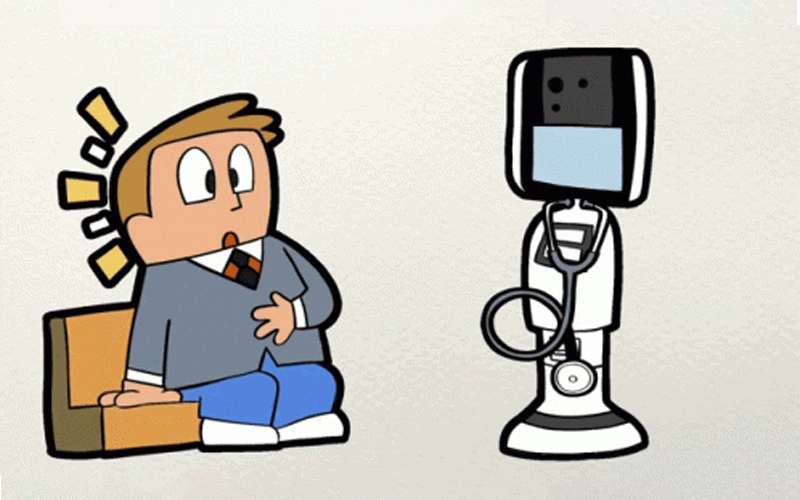
5. Changing Online and In-Person Consultations
Babylon App is a real-world example of how AI applications in healthcare can change doctor consultations. The app offers online medical consultation and healthcare services, providing the best AI advice based on a patient’s medical history and available knowledge.
This AI-based app works in a way that the users only have to report the symptoms of their illness, and the app then checks the symptoms against the database of the diseases using the speech recognition method. After noting the patient’s history and circumstances, they offer a course of action that the patient should take.
The ever increasing demand for healthcare apps incorporating AI technology is evident from the fact that over 54% mHealth app users are willing to engage with AI and Robotics for their IT healthcare consulting needs. This AI trend highlights the growing popularity and acceptance of AI solutions in healthcare.
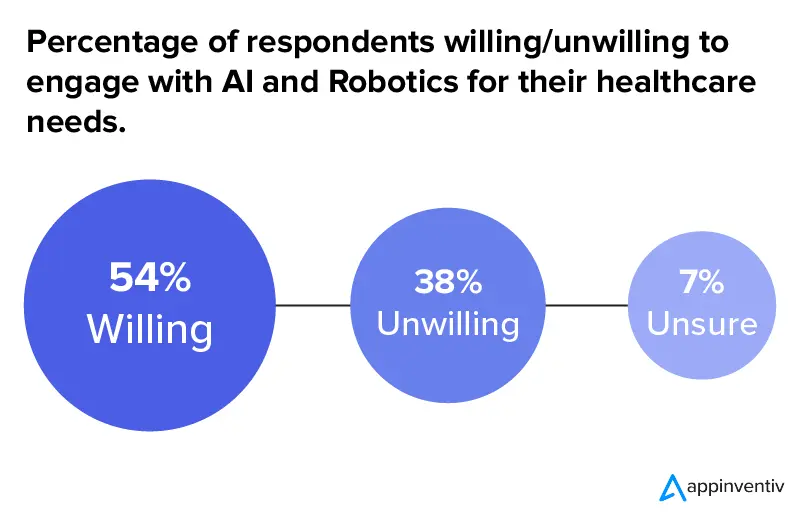
6. Medication Management and Health Assistance
Sense.ly, a medical startup, developed the world’s first digital nurse, Molly. The virtual nurse has a friendly face and pleasant voice, aiming to monitor the condition and treatment of patients. The mobile app uses machine learning to support patients with chronic conditions during the intervals between their medical appointments. The app provides tested, customized monitoring and follow-up care, focusing on chronic diseases. Being present to inform patients when to take medications and then monitoring if they did, the benefits of artificial intelligence in healthcare are immensely valuable.
7. Drug Creation
Creating pharmaceuticals using clinical trials can take over a decade and even cost billions. Introducing AI to drug creation doesn’t just make the process faster but also extremely cost-effective.
Atomwise is one such network that uses supercomputers, which roots out therapy from molecular structure databases. In 2015, Atomwise used its AI technology to discover the existing medicines in the market that could be redesigned for treating the Ebola virus. They found two drugs that could help solve the epidemic. The analysis that would have taken years happened in one day through Atomwise AI technology.
8. Precision Medicine
AI in medicine has a big impact on genomics and genetics. AI use in healthcare aids in identifying patterns in massive data sets containing medical records and genetic information, helping find links to diseases and mutation. No wonder AI can tell doctors what happens in the cell when DNA is changed through genetic variation, whether therapeutically or naturally.
(Also read: How Generative AI is Reshaping the Healthcare Industry – 10 Applications and Use Cases)
9. Analysis of a Healthcare System
As healthcare invoices increasingly transition to digital formats, retrieving data about the doctor, treatment, and medical establishment becomes effortlessly accessible. After data mining, hospitals can generate reports on the mistakes they are continuously making in treating a certain type of condition to help improve and even avoid unnecessary hospitalizations of patients, wherever needed.
Also read: How Business Intelligence in Healthcare is Improving Patient Care
A company in the Netherlands, Zorgprisma Publiek, has been analyzing the invoices shared by the hospitals and using Watson technology to mine the collected data.
10. Automating Image Diagnosis
One of the most remarkable applications and benefits of AI in healthcare is the computer vision capabilities. Hospitals and clinics use AI to recognize abnormalities in different kinds of medical images as CT or radiology scans. Image recognition assists doctors in diagnosing tumors, kidney, and liver infections, improving cancer prognosis, and more. Furthermore, AI in dentistry leverages these same computer vision technologies to carefully analyze dental radiographs and 3D scans, enabling early detection of cavities, gum diseases, and other subtle oral health issues for more accurate and timely treatment.
The best example of AI-powered visual perception is the tool used at the UVA University Hospital. Utilizing AI and ML in healthcare, the tool analyzes children’s biopsy images to distinguish between environmental enteropathy and celiac disease, doing it as reliably as doctors do.
The best example of artificial intelligence in healthcare is AI-powered visual perception used at the UVA University Hospital. Utilizing AI and ML in healthcare, the tool analyzes children’s biopsy images to distinguish between environmental enteropathy and celiac disease, doing it as reliably as doctors do.
Types of AI in Healthcare
AI for healthcare is a collection of many technologies, each serving specific purposes. While the industry greatly benefits from various AI technologies, the tasks and processes they support may vary. Let’s explore some of the most significant AI technology in healthcare:
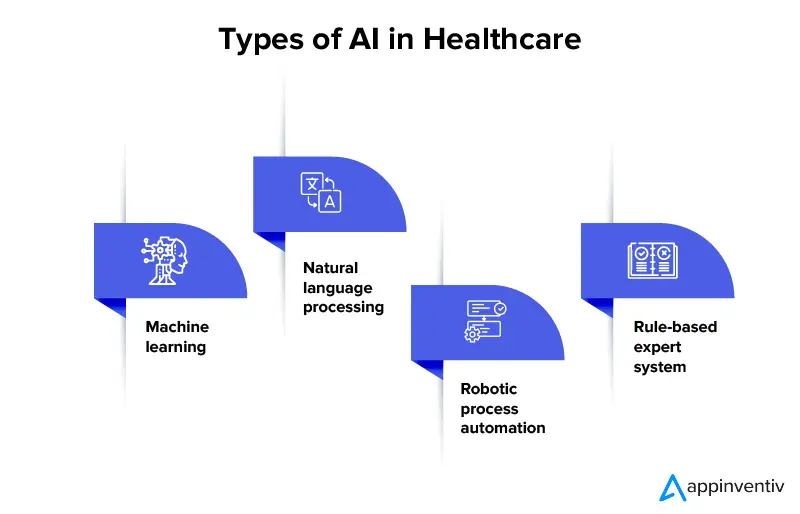
1. Machine Learning
Machine Learning (ML) is one of the common forms of AI in the healthcare industry. Machine learning uses data and algorithms to imitate how humans learn, gradually improving its accuracy.
Precision medicine is one of the most remarkable applications of machine learning in healthcare. It predicts what treatment procedures will best suit the patients based on various patient attributes and treatments. The majority of precision medicine applications rely on supervised learning, utilizing a training dataset with known outcomes.
The most complex form of machine learning is deep learning or neural network models with many levels of variables or features to predict outcomes. A common application of deep learning is the recognition of potentially cancerous lesions in radiology images.
Also Read: Estimating the Time, Cost, and Deliverables of an ML App Project
2. Natural Language Processing
Natural language processing (NLP) includes applications such as text analysis, speech recognition, and so on. A common use of NLP in healthcare involves creating and classifying clinical documentation and published research. NLP systems can analyze unstructured clinical notes on patients, giving incredible insight into improving methods, understanding quality, and better patient care.
3. Robotic Process Automation
RPA in healthcare uses automation technologies to learn, mimic, and execute rules-based business processes. Compared to other AI technology in healthcare, they are inexpensive, easy to program, and transparent in their actions. AI automation in healthcare helps streamline repetitive tasks like updating patient records or billing.
Related Article: The Handbook You Need to Understand Robotic Process Automation
4. Rule-Based Expert System
A rule-based expert system is the simplest form of artificial intelligence and uses prescribed knowledge-based rules to solve a problem. The aim of the expert system is to take knowledge from a human expert and convert this into several hardcoded rules to apply to the input data.
In healthcare, they are widely employed for clinical decision-support purposes. These rule-based systems work well up to a point and are easy to understand. But when the number of rules increases, they begin to conflict with each other and break down. However, now they are being replaced in healthcare by more approaches based on data and machine learning algorithms.
You may like reading: The Ultimate Business Guide to Healthcare Application Development in 2025
Challenges of AI in Healthcare
With the ever-evolving applications of AI in healthcare, there also comes a set of challenges that need to be addressed efficiently. These challenges range from data quality issues to security concerns, creating setbacks to harnessing the full potential of AI solutions in healthcare. Let’s delve deeper to understand the impact of these challenges on the industry.
Data Availability
One of the biggest barriers to leveraging AI trends in healthcare is that training them requires huge amounts of data from several sources, including electronic health records, pharmacy records, etc. Since the data is fragmented and patients often consult with different health providers, the data gets complicated and less comprehendible, resulting in errors and higher costs.
To overcome this barrier, businesses can leverage the power of blockchain technology in healthcare and ensure data availability.
Privacy Concerns
Another key challenge of utilizing AI for healthcare is the need for robust security measures to protect sensitive information in the vast amount of collected data. So, it’s vital to look for the right ML and Artificial intelligence development company that can offer a wide range of security options to safeguard customers’ data.
Errors and Injuries
There are some instances where AI systems might get wrong in detecting potential risks or designing effective treatment plans. For instance, if an AI-based system suggests the wrong drug to a patient or makes an error in locating a tumor in a radiology scan, it could result in the patient’s injury or dire health-related consequences.
Also Read: Key Healthcare Trends That Will Redefine Industry in 2022
Transformative Benefits of AI in Healthcare
In today’s tech-driven age, AI and healthcare have become inseparable. Technology is reshaping the industry with its profound impact across various disciplines. Let’s discover in detail the impact of ai in healthcare:
Personalized Treatment Plans
Al-driven predictive analytics enable personalized treatment plans in healthcare tailored to individual patient data. This approach enhances therapy effectiveness and minimizes adverse effects, improving patient care.
Operational Efficiency
AI and robotics in healthcare automate repetitive administrative tasks like scheduling and medical record management, freeing up healthcare professionals to focus on more value-added activities like patient care.
Telemedicine and Virtual Health Assistants
When talking about how does AI help healthcare, virtual health assistant emerges as the one of the prime AI in healthcare examples. It enables remote consultations and real-time patient monitoring, expanding access to healthcare services.
Drug Discovery and Development
AI in drug discovery has revolutionized pharmaceutical research, leading to more targeted therapies for complex diseases.
Patient Engagement and Education
AI applications in healthcare enhance patient engagement through personalized health information delivery and medication reminders, empowering individuals to manage their health proactively.
Future of AI in Healthcare
AI is already revolutionizing the healthcare industry, redefining medical practices, patient experience, and pharmaceutical operations. Medical units are using generative AI in healthcare to predict everything from designing effective treatment plans for women who develop breast cancer to forecasting emergency department volumes and beyond.
However, it is just the beginning of an exciting journey. In the future, AI will enable the next generation of radio tools that are precise and detailed enough to replace the need for tissue samples in some cases. It may help service providers to define the aggressiveness of cancers and target treatments more appropriately. AI is also enabling “virtual biopsies” and advancing the innovative field of radio mics.
Moreover, the utilization of electronic health data can help identify patients at risk and detect infection patterns before they show symptoms. By leveraging AI for healthcare, these analytical capabilities can deliver swift and precise alerts to healthcare providers. The use of AI in medicine and healthcare can also provide earlier warnings for conditions like seizures or sepsis, which typically necessitate intensive analysis of highly complex datasets.
Risk scoring, clinical decision support, and early alerting are some of the significant areas of development for this revolutionary tech trend in healthcare, propelling the healthcare industry into a new era of clinical excellence and remarkable advancements in patient care.
Also Read- Opportunities, cost, and process of developing the metaverse for healthcare.
In simple terms, AI tools in healthcare are rapidly penetrating the industry and witnessing a significant surge in their widespread adoption. Consequently, it helps drive efficiency, improve patient care, optimize operations, and reduce the ever-increasing burden on the healthcare systems. The effective utilization of conversational AI in healthcare will create intelligent processes and workflows, making medical practices more effective, more equitable, and more personalized.
How Appinventiv Can Help in Your AI Journey
As we can see artificial intelligence and healthcare go hand-in-hand because of the multiple benefits this technology offers to the industry. Artificial intelligence is revolutionizing healthcare by making it more intelligent, efficient, and patient-centric. The integration of AI in healthcare can enhance diagnostic accuracy, streamline administrative tasks, optimize resource allocation, and improve treatment outcomes.
However, some hurdles hinder the way of effective utilization of generative AI solutions in healthcare. By partnering with reliable software development companies like Appinventiv, one can easily overcome those challenges and produce more accurate diagnoses, drug discovery, and treatment plans.
Appinventiv, leading AI services and ML software development company, actively works with industry leaders like Vyrb, JobGet, KFC, etc., to build custom AI and ML-based models that help enhance customer experience, improve revenue, and reduce costs.
With a team of skilled professionals, we are well-equipped to create innovative AI-powered solutions that address the unique challenges and requirements of the healthcare industry. By partnering with us, you can harness the full potential of AI in healthcare and experience transformative changes.
Thus, all healthcare institutions must invest in medical software development services to streamline operations and improve patient care.
Still unsure where is AI used in healthcare and how healthcare AI consulting can benefit your medical business? Get in touch with our AI experts now and learn more about the transformative power of AI in healthcare
Get in touch with our AI experts now.
FAQs
Q. What is AI in healthcare?
A. AI in healthcare uses machine learning, deep learning, natural language processing, chatbots, and other AI-enabled tools to streamline administrative tasks and improve the patient experience, including diagnosis, drug discovery, treatment, and outcomes.
Q. How can AI improve healthcare?
A. AI can improve healthcare in several ways, such as:
- AI in healthcare can help diagnose diseases more accurately by analyzing large volumes of data and detecting patterns.
- Healthcare AI software solutions can help streamline administrative tasks and enhance operational efficiency.
- The effective use of AI in healthcare helps monitor patients in real time, enabling continuous remote monitoring and personalized treatment plans.
- AI technology in healthcare aids in drug discovery and the development of new treatments and therapies.
Q. How is AI used in healthcare?
A. AI in healthcare is used to improve various operational aspects, redefining how we diagnose, treat, and monitor patients. It helps analyze medical data, design personalized treatment plans, support drug discovery, and automate administrative tasks. Furthermore, AI chatbots in healthcare provide round-the-clock support, improving patient engagement and experience.


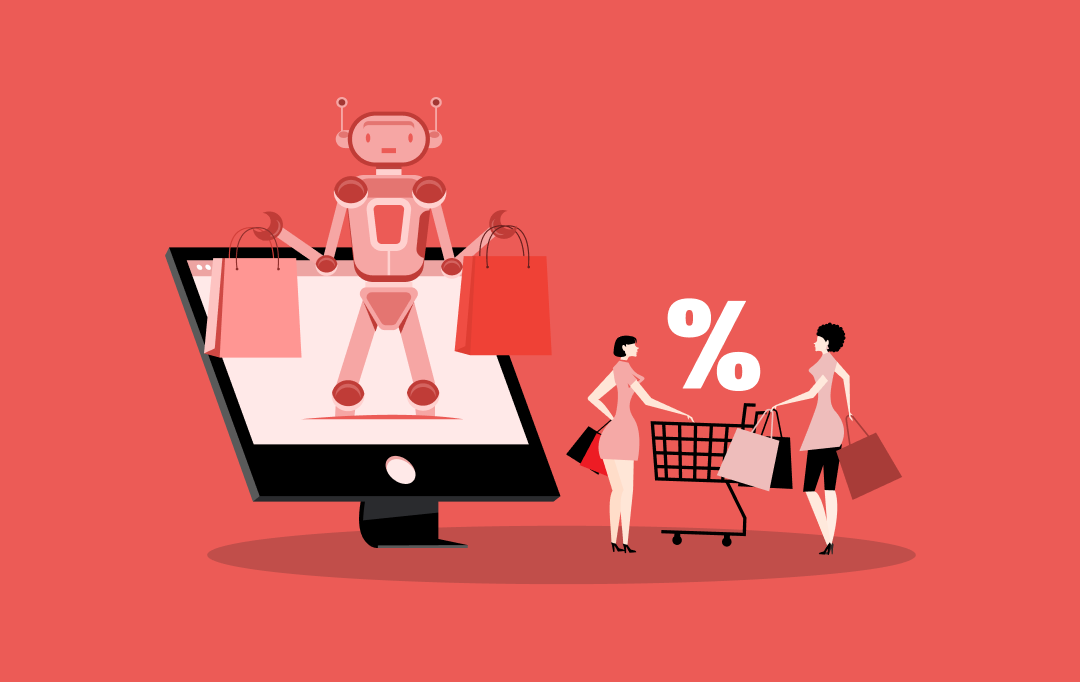
10 Use Cases and Benefits of How AI Agents Are Revolutionizing the Retail Industry
Key takeaways: AI agents in the retail industry are revolutionizing businesses by enhancing customer experience and streamlining operations. From personalized recommendations to predictive analytics, AI offers tangible benefits like increased conversions and reduced costs. AI adoption can lead to scalable growth and a competitive edge in the retail industry. Retailers must consider data strategies, talent…
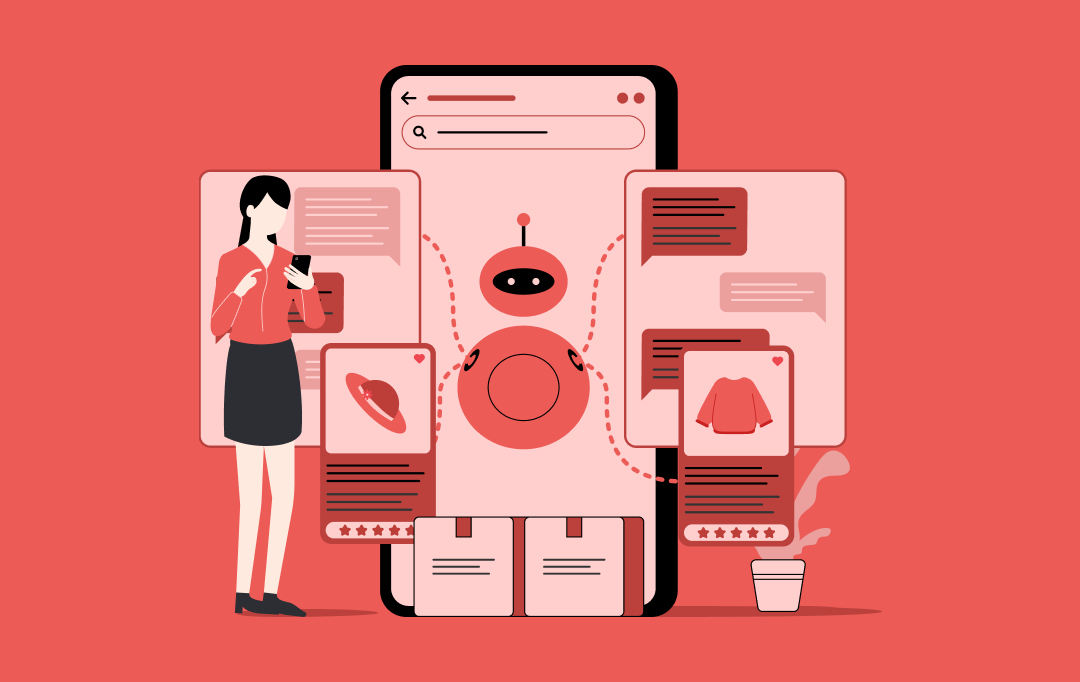
12 Ways AI is Revolutionizing the Fashion Industry
Key takeaways: AI in fashion is booming, with a market value of $28.48 billion by 2032 and a 39.43% CAGR. It's transforming design, trends, shopping, manufacturing, and customer service. Top brands like Zara and H&M report 200% higher conversions, 64% fewer returns, and 25% better retention. Success demands strategy, data infrastructure, and phased AI integration…
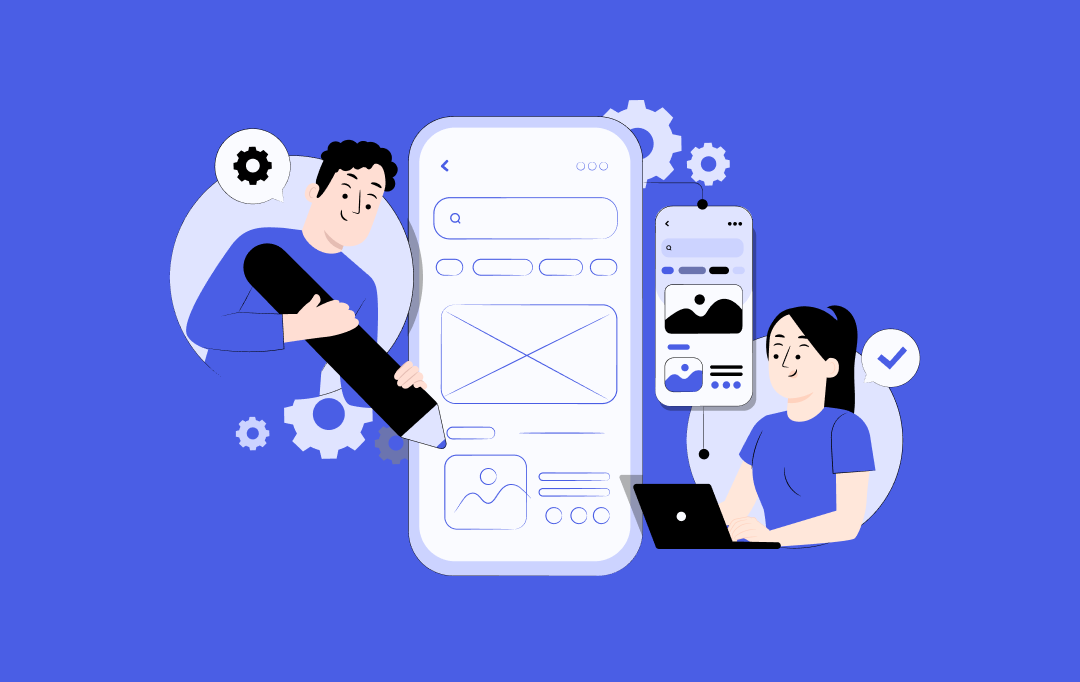
How Much Does It Cost to Build an App like Janitor AI?
Key takeaways: Cost Breakdown: The cost of app development varies, with an MVP App costing $40,000 to $90,000, a Mid-Tier App costing $100,000 to $200,000, and an Enterprise Grade App costing $300,000 to $ 500,000 or more, depending on features, complexity, and the expertise of the development team. Key Factors: Platform choice, AI integration, and…






